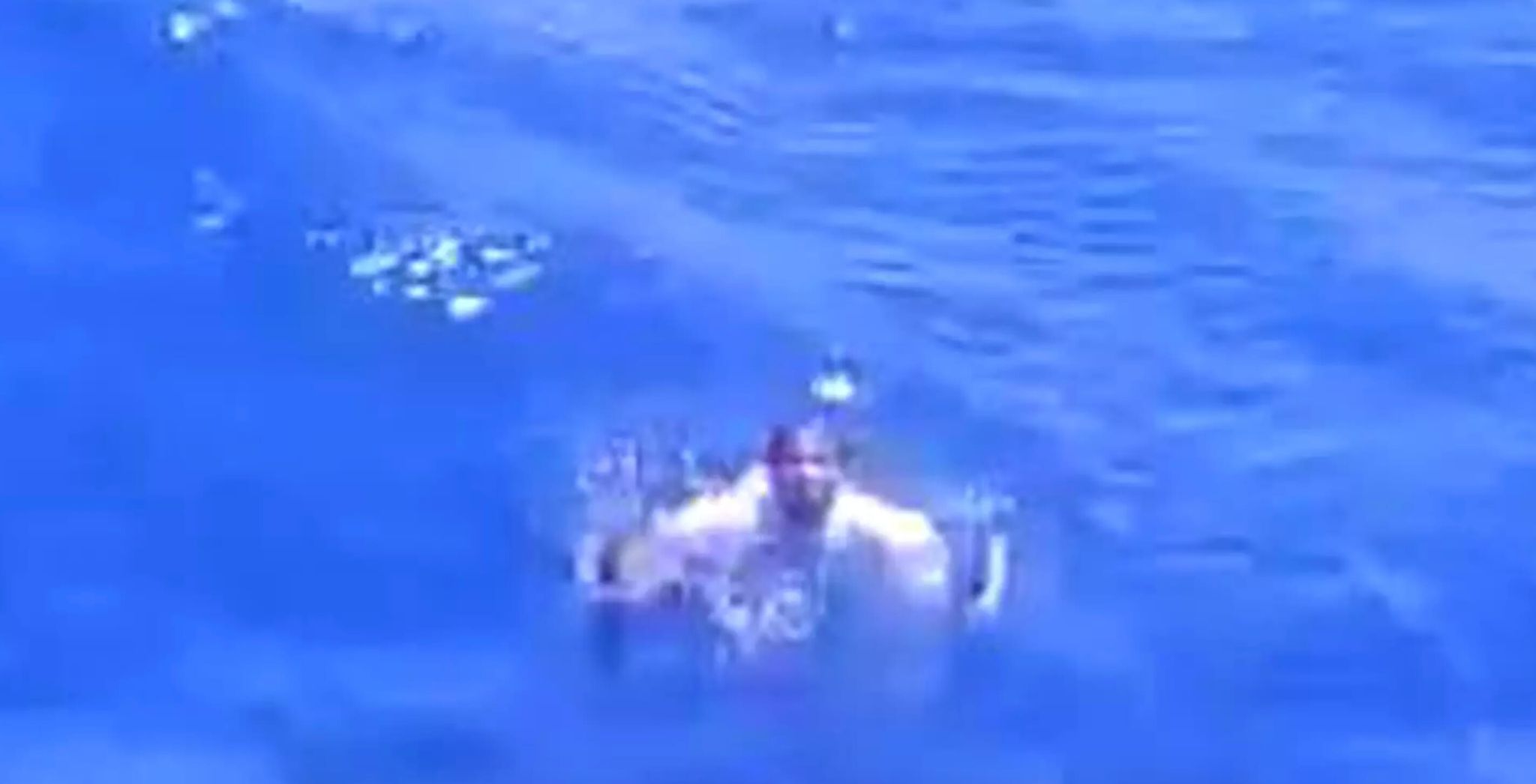That subject line also fits with today’s launch of The Outlaw Ocean Podcast series in collaboration with CBC and The LA Times.
The first episode reveals a 10-minute video captured by a cell phone camera that was left in the backseat of a taxi in Fiji. The footage shows a group of unarmed men at sea, possibly 15 of them, shot and killed by a semiautomatic weapon.
The only thing more shocking than the footage is that after the killing spree the witnesses and culprits pose for celebratory selfies on camera.
The number of violent killings — and deaths at sea in general — remain extremely hard to assess. The typical estimate has been 32,000 casualties per year, making commercial fishing among the most dangerous professions on the planet. However, this estimate was drastically increased this year to more than 100,000 fatalities per year — over 300 a day, according to research produced by the Fish Safety Foundation and funded by the Pew Charitable Trust.
This makes commercial fishing, hands down, the most dangerous job on the planet. But here is the deeper problem: the United Nations, which tracks fatalities by profession, does not indicate how many of these deaths are from avoidable accidents, abject neglect or violence. So we do not know whether the world’s most dangerous profession is also among the most violent.
The first episode of The Outlaw Ocean Podcast series looks closely at the question of violence at sea — its causes, impunity, and prevalence. The episode focuses on this gruesome video that was sent to me from a source at Interpol.
The shocking footage was made public and yet no government was willing to investigate. Authorities dismissed it as a case of self-defense against a pirate attack – case closed.
But I couldn’t get the video out of my mind. The capsized boat didn’t fit any of the pirate hunters’ tales. The men shot were unarmed. Their fishing nets were visible. The boat was sinking anyway. The killers were relaxed, laughing. The killing was targeted. This was clearly a case of murder.
Looking for answers, the episode takes us to the bizarre world of floating armories, which are part bunkhouse, part weapons depot, where maritime mercenaries wait for their next ship deployment. The reporting explores how Somali piracy is often used as a pretext for bloodletting by fishing boat captains or private security guards and the reasons that offshore crime often happens with minimal investigation by governments or flag registries.
You can listen to the episode here:
